Owls and barn owls both belong to the order Strigiformes. The order Strigiformes is divided into the families Strigidae and Tytonidae. The Strigiformes include the genera Tyto and Phodilus, while the Tytonidae is more diverse, covering different genera of owls, as well as specific species within those genera. The Strigiformes are divided into subfamilies, such as Asioninae, Striginae, and Surniinae.

In this article, we will take a closer look at the various owls found in these subfamilies and explain the genera and species within each subfamily. You will also learn about their distribution, diet, and some of the owl species in each genus.
Owl Families and Subfamilies Overview
Subfamily Asioninae (Eared Owls)
Genus Asio
Genus Nesasio
Genus Bubo
Genus Pseudoscops
Subfamily Striginae (Wood Owls)
Genus Otus
Genus Strix
Other Key Genera
Subfamily Surniinae (Small Owls)
Genus Aegolius
Genus Glaucidium
Genus Athene
Owls and barn owls both belong to the order Strigiformes, which is divided into two main families: Strigidae (typical owls) and Tytonidae (barn owls). The Strigidae family is the most diverse, with hundreds of species across the globe, further divided into subfamilies such as Asioninae, Striginae, and Surniinae.
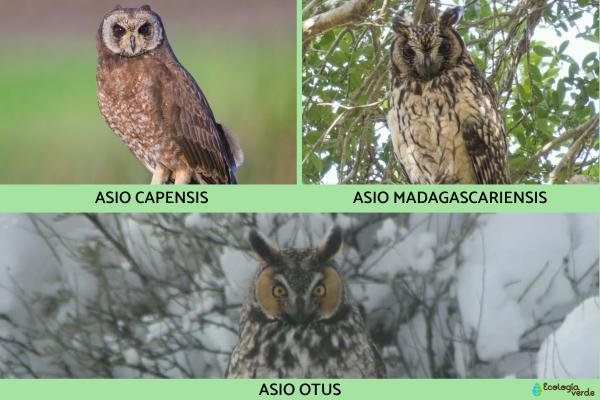
Genus Asio: Medium-sized owls with distinctive ear tufts. Examples include the Long-eared Owl (Asio otus), African Long-eared Owl (Asio capensis), and Madagascar Long-eared Owl (Asio madagascariensis). They measure 30–46 cm long, wingspan 80–103 cm.
Genus Nesasio: Contains just one species, the Solomon Islands Owl (Nesasio solomonensis), found only in the Solomon Islands’ forests. Reddish-brown plumage and white eyebrows, up to 30 cm in length.
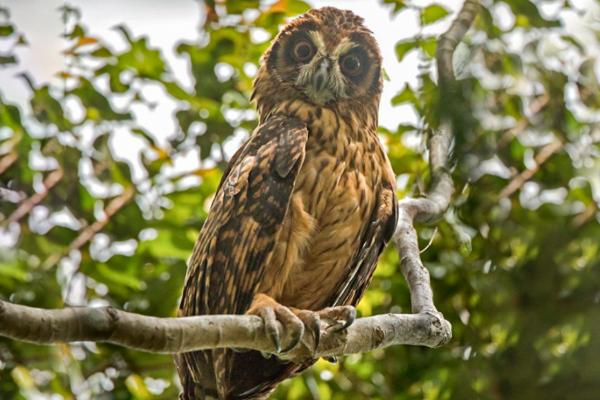
Genus Bubo: The largest owls worldwide, distributed across Asia, Europe, and the Americas. Notable species: Eurasian Eagle-Owl (Bubo bubo), Gray Eagle-Owl (Bubo cinerascens), Magellanic Horned Owl (Bubo magellanicus), Philippine Eagle-Owl (Bubo philippensis), and Snowy Owl (Bubo scandiacus)—the latter famed for its pure white plumage.
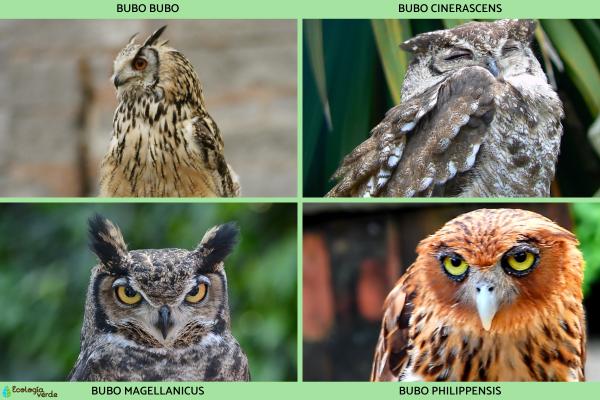
Genus Pseudoscops: More primitive owl species with a triangular head shape. Includes Pseudoscops clamator and Pseudoscops grammicus.

Genus Otus: Known as scops owls, these are small, charming nocturnal owls with "horns" or ear tufts. Common in many rural areas. Examples: Otus nigrorum, Otus pamelae, Otus pauliani.
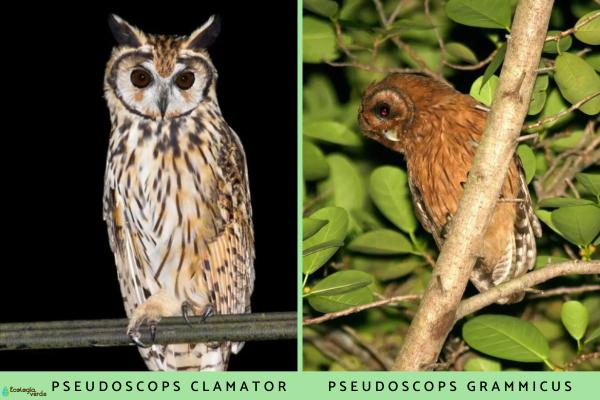
Genus Strix: Large, rounded owls often confused with barn owls. Distributed throughout Europe, Asia, Africa, and the Americas. Size 30–40 cm. Famous species: Tawny Owl (Strix aluco), Chaco Owl (Strix chacoensis), David’s Owl (Strix davidi), Hadoram’s Owl (Strix hadorami).

Genus Scotopelia: Known as fishing owls, found in Africa; brown plumage, adapted to catching fish. Species: Scotopelia bouvieri, Scotopelia peli, Scotopelia ussheri.
Genus Ketupa: Large Asian fish owls, 50–60 cm tall. Examples: Ketupa flavipes, Ketupa ketupu, Ketupa zeylonensis.
Genus Jubula: Only one species, the Maned Owl (Jubula lettii), found in evergreen forests in Congo, Gabon, and Ghana.
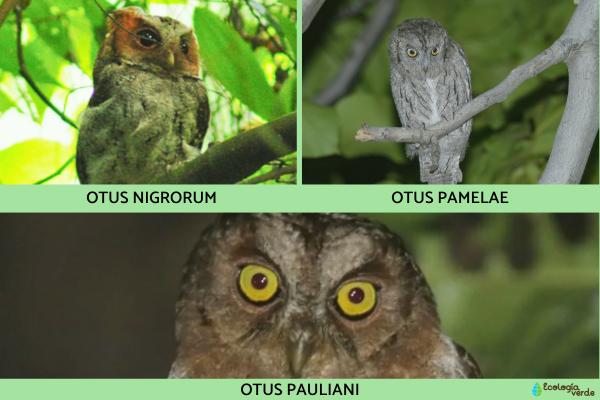
Genus Lophostrix: Contains just one species, the Crested Owl (Lophostrix cristata), found in Central and South America; notable for its long "eyebrows."
Genus Margarobyas: Only one species, Lawrence’s Owl (Margarobyas lawrencii), endemic to Cuba, up to 22 cm.

Genus Pyrroglaux: Only the Palau Owl (Pyrroglaux podarginus), native to the Palau Islands in Micronesia.
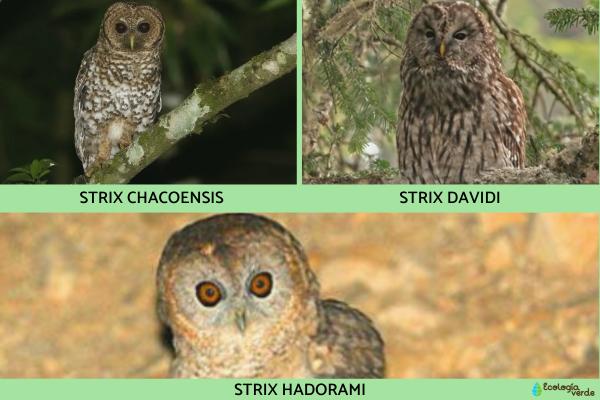
Genus Piyloscops: Only the Flammulated Owl (Psiloscops flammeolus), distributed in North and Central America, 17 cm long.
Genus Megascops: Known as screech owls, nocturnal, feed on insects and small mammals; found in North and Central America. Examples: Megascops albogularis, Megascops asio, Megascops barbarus.

Genus Ptilopsis: Two beautiful species in Africa, Ptilopsis leucotis and Ptilopsis granti; recognized for striking silvery-white and darker feather patterns.
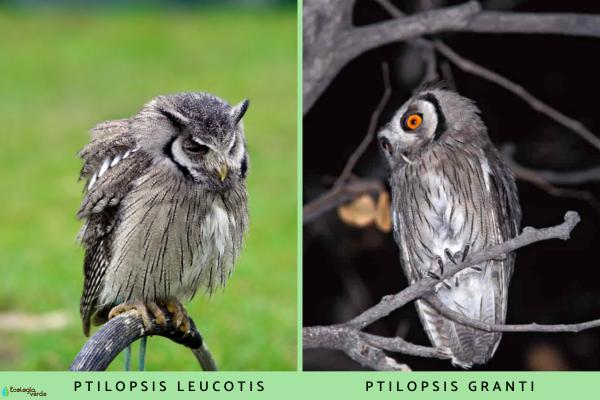
Genus Mascarenotus: All species are extinct; formerly lived on the Mascarene Islands in the Indian Ocean.
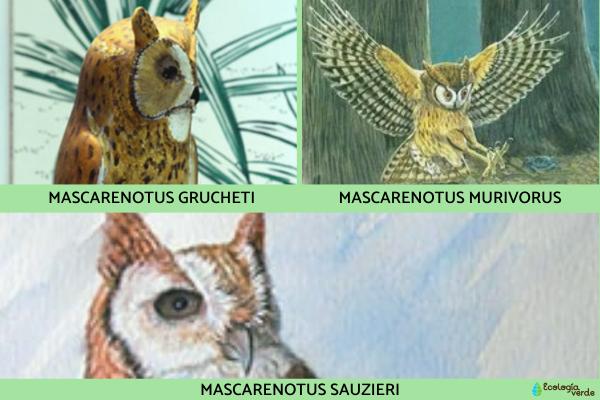
Genus Aegolius: Small forest owls of Europe, Asia, and North America, 16–27 cm in length; eat insects and small mammals. Examples: Aegolius acadicus, Aegolius gradyi, Aegolius harrisii.
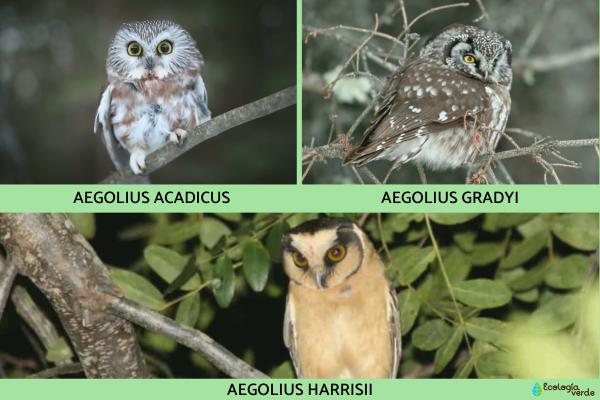
Genus Glaucidium: Widespread tiny owls known as pygmy owls, found in Africa, Europe, Asia, and the Americas; 15–20 cm; eat insects and small mammals. Examples: Glaucidium albertinum, Glaucidium brasilianum, Glaucidium californicum.

Genus Athene: Small, charismatic owls under 15 cm; amber or yellow eyes, spotted feathers, white eyebrows. Examples: Indian Little Owl (Athene brama), Burrowing Owl (Athene cunicularia), Little Owl (Athene noctua).
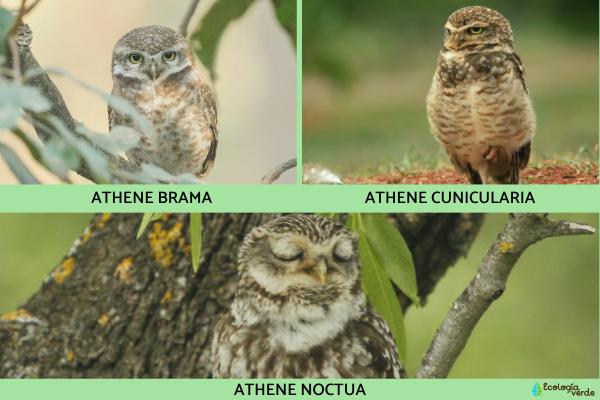
Owls are iconic nocturnal raptors found across every continent except Antarctica. With remarkable diversity in size, habits, and appearance, they play vital ecological roles as predators and indicators of healthy ecosystems. Protecting owl diversity is essential for maintaining ecological balance and appreciating nature’s wonders.
animal tags: Owl species
We created this article in conjunction with AI technology, then made sure it was fact-checked and edited by a Animals Top editor.